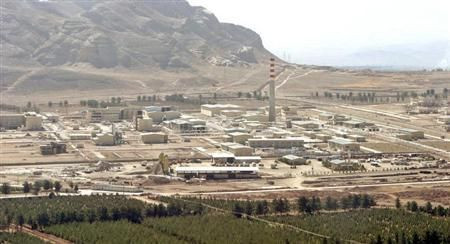President-Congress Clash Over Iran Sanctions Won’t Serve U.S. Interests

A congressional push for more sanctions against Iran raises a difficult question related to the six-month global deal over Tehran’s nuclear program and to President Barack Obama’s stature as America’s commander-in-chief and top diplomat.
The question: Should Congress, at moments when it disagrees with a President’s foreign policy, try to re-write that policy even if, as in this case, that would undercut the President’s authority on the world stage?
This is no new dilemma; Presidents and Congresses have long struggled over who should control foreign policy at moments of fundamental disagreement.
For example, Congress enacted the War Powers Act in 1973 over President Richard Nixon’s veto to limit a President’s power to make war without congressional assent. In the mid-1970s, Congress imposed new requirements to force Presidents to factor human rights concerns into the nation’s foreign policy. In the early 1980s, Congress passed the “Boland Amendment” to limit President Ronald Reagan’s ability to assist Nicaragua’s Contras, a rebel force that was trying to overthrow Managua’s Marxist government.
In cases like these, Presidents traditionally fight back. They acknowledge that, constitutionally speaking, Congress has the power to declare war and to appropriate the money to finance it. But, as a practical matter, they point out, only a President has the singular voice to set and articulate the nation’s foreign policy.
The congressional push for tougher sanctions against Iran in the aftermath of the nuclear deal is understandable, for that agreement is weighted heavily toward Iran’s economic relief and away from its nuclear concessions. That is, the deal will help rescue Iran’s economy from possible collapse while it enables Iran to continue making nuclear progress (albeit at a slower pace). In exchange, Iran will limit its uranium enrichment to lower levels of purity and allow inspections at key (though not all) nuclear sites.
Moreover, the Obama Administration is using questionable logic to sell its strategy, which is further stoking skepticism. Administration officials say that the steadily stronger sanctions of recent years forced Tehran to the negotiating table. But, they now say, even stronger sanctions will drive Tehran away and eliminate hopes of a permanent diplomatic solution. Why that makes sense is anyone’s guess.
Skeptics have others reasons to question Administration assurances about what the deal does, how the Administration will enforce it, and what the Administration might do if this deal falters or if global negotiators can’t fully resolve the Iranian nuclear issues after it expires in six months.
David Cohen, Treasury’s Undersecretary for Terrorism and Financial Intelligence, argued in a Wall Street Journal op-ed this week that the deal gives Iran less sanctions relief than it seems. But, also this week, the Israeli newspaper Haaretz reported that U.S. officials conceded privately to their Israeli counterparts that the reported $7 billion in sanctions relief will really total $20 billion to $25 billion.
Meanwhile, Obama and Secretary of State John Kerry maintain that all options remain “on the table” for resolving the Iran nuclear issue. But, Obama’s last-minute retreat over military action after Syria crossed his “red line” in using chemical weapons and a broader U.S. retreat from the region has left U.S. allies increasingly convinced that Washington no longer plans to prevent Iran from developing nuclear weapons at all costs.
All of this would seem to argue for the congressional push for more sanctions. But, before pushing aggressively for such sanctions, proponents should at least consider the bigger, longer-term picture:
The world looks to America for global leadership, and only the President can realistically provide it on behalf of the nation. Only he (or, at some future point, she) can represent the nation in top-level diplomatic talks, and only he can react quickly and decisively to fast-moving global events.
An executive-legislative clash over foreign policy undercuts the President’s global authority by raising doubts around the world about whether his word is America’s final word, and whether he can stand by his commitments.
Obama’s approach to Iran’s nuclear progress may be misguided. But, it won’t be America’s last global challenge. A congressional push to undercut Obama’s approach will not just weaken his global stature for the next three years. It could weaken the Presidency as an institution beyond his tenure, forcing his successor to rebuild it.
That won’t do his successor, or the nation, any good.
Lawrence J. Haas, former communications director for Vice President Gore, writes widely on foreign affairs and is author of “Sound the Trumpet: The United States and Human Rights Promotion.” Follow him on Twitter @larryhaasonline.
© Copyright IBTimes 2024. All rights reserved.





















